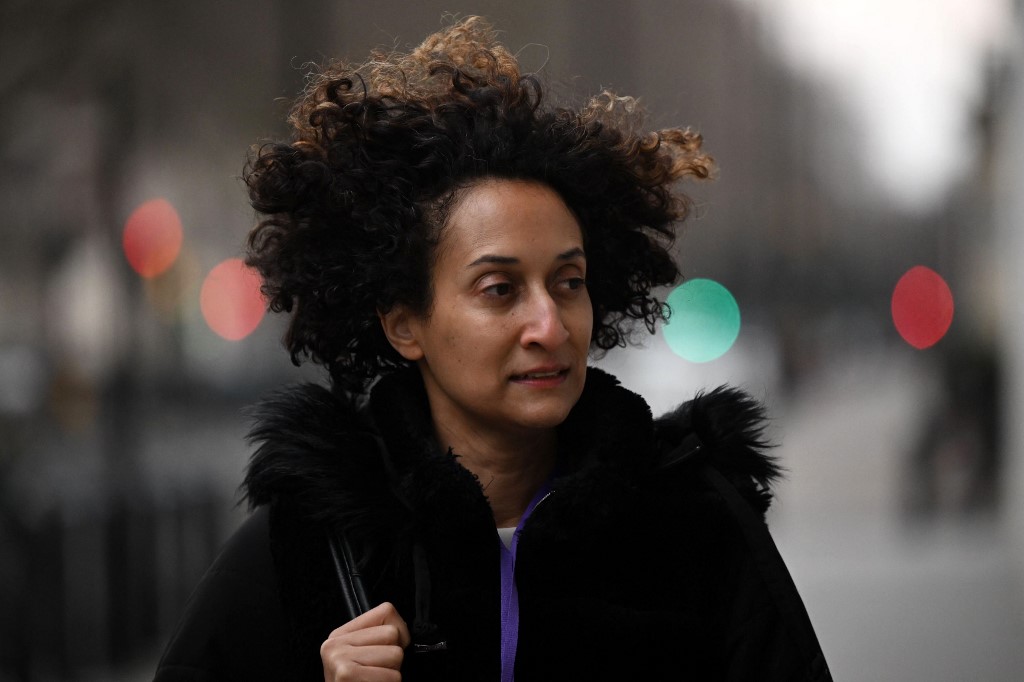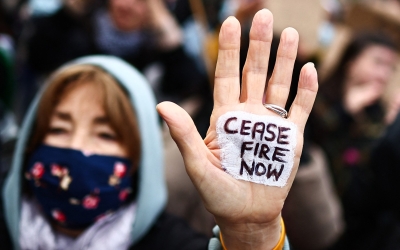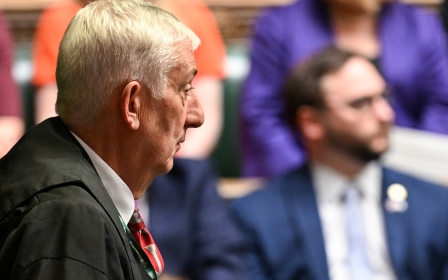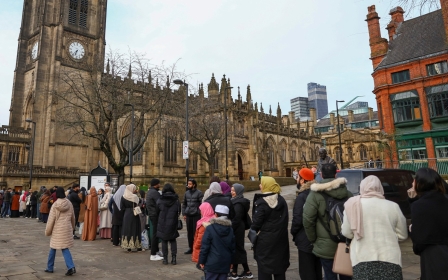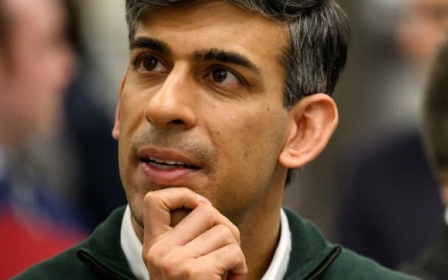How the UK has failed to protect Muslim religious rights
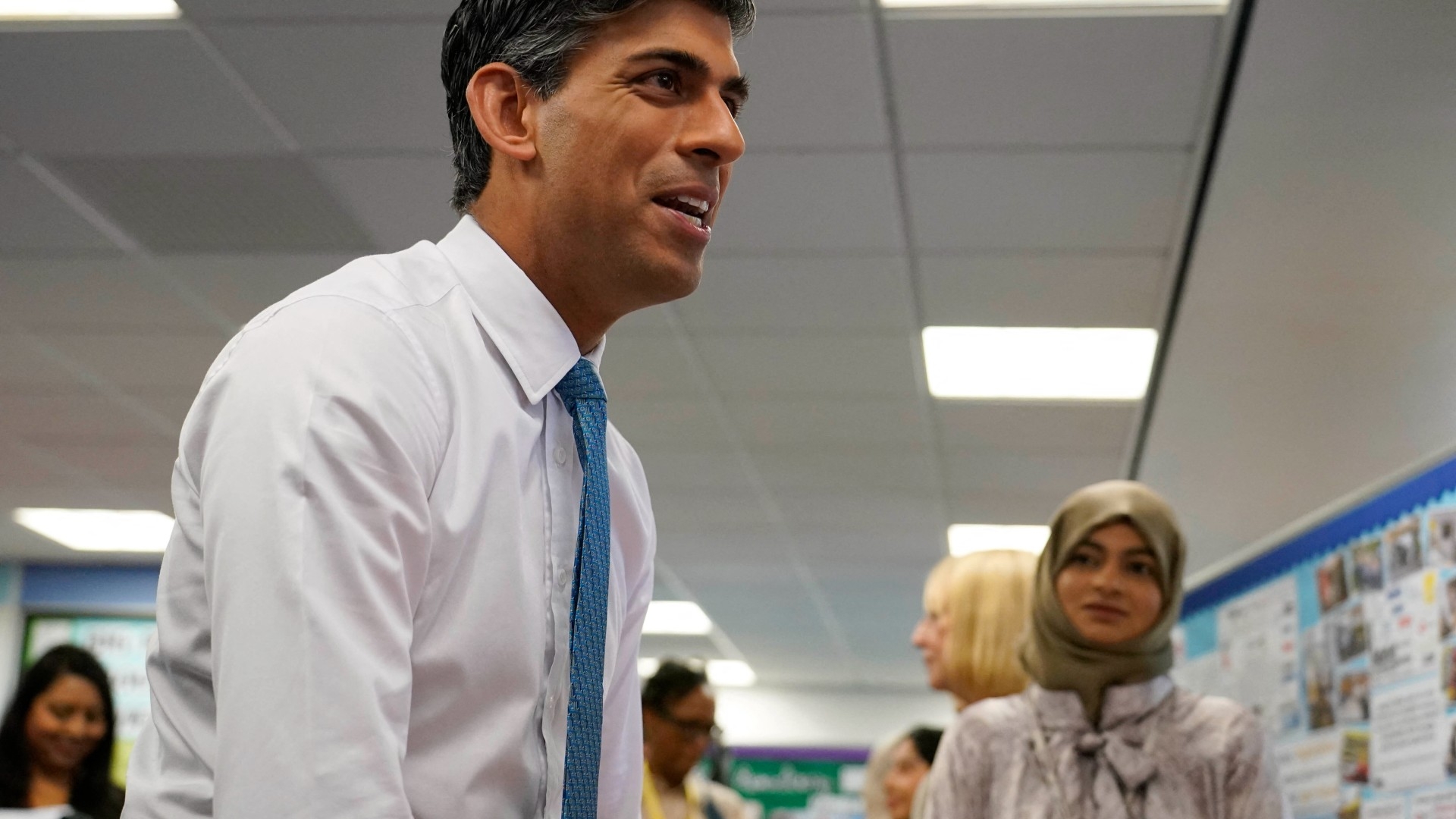
The high court ruling that recently upheld a prayer ban at Michaela Community School in Wembley joins a depressing list of cases where the concerns of Muslim parents about their children’s schooling are condemned and misreported by mainstream media. Other examples include the Trojan Horse affair and the Birmingham parent protests about teaching of LGBT issues.
“Hardline Muslims” are accused of threatening “integration” and undermining successful headteachers. The government is called upon to support those headteachers and introduce measures to prevent similar episodes from happening again.
The academic success of Michaela school is well-attested. It is described by its headteacher, Katharine Birbalsingh, as the strictest school in Britain. But there are other successful schools without such a strict regime, including Park View, which was at the heart of the Trojan Horse affair. It had similar GCSE results, with 72.7 percent of pupils in receipt of free school meals, as described in the Clarke Report, compared with Michaela’s 25 percent.
But why did Michaela school have such a problem with making provisions for Muslim pupils to pray? Its intake is 90 percent ethnic minorities, and half of the students are Muslim. In many other successful schools with this kind of intake, facilities for private prayer would be provided.
The court was told it would have been logistically difficult to do so. More importantly, it would have been against the “ethos” of the school. The judge was told that Michaela was a “secular secondary free school for boys and girls” and that its ethos involved “aggressively promoting integration”.
New MEE newsletter: Jerusalem Dispatch
Sign up to get the latest insights and analysis on Israel-Palestine, alongside Turkey Unpacked and other MEE newsletters
This includes strict hierarchical relationships between pupils and teachers, with a very rigid format of teaching. Strict rules also apply to breaks and lunch periods, including a “rule of four”, where no more than four pupils can gather to socialise. Teachers will intervene to ensure that groups are ethnically and religiously mixed.
It is not clear that allowing prayer, as a moment of reflection and devotion conducted in the company of others, would have undermined the substantive aims of the school’s policy. Worryingly, Birbalsingh regarded prayer as a form of segregation to which her policy of integration was opposed.
Collective worship
The claimant, a pupil identified in court documents as TTT, accused the school of being in breach of the European Convention on Human Rights and the 2010 Equality Act. This was always going to be difficult in light of the recognised unwillingness of the courts to uphold collective rights against the rights of an individual.
The judge followed previous precedents to argue that because the pupil had voluntarily attended the school and was theoretically able to move to another school, her rights were not breached.
But was something missing in the way the case proceeded - something that explains why many other schools have no problem accommodating the prayer requirements of Muslim pupils and providing facilities?
The headteacher and commentators defending her pointed to the school being secular in defending the prayer ban. But there are no secular state schools in England
Strikingly, the headteacher and commentators defending her pointed to the school being secular in defending the prayer ban. But there are no secular state schools in England. What was missing from the case was any discussion of the requirement on English schools to provide compulsory religious education and daily acts of collective worship, which should be of a Christian kind (albeit non-denominational).
There is little discussion of this in the judgement itself, except to note that “twice a week, pupils will attend assembly where they sing the national anthem and receive a talk from Ms Birbalsingh or a Head of Year”. Birbalsingh has publicly acknowledged that the school is in breach of the requirements (as are many others; according to a report from Schools Week, Ofsted stopped inspecting collective worship two decades ago after 76 percent of schools were deemed non-compliant).
Still, the guidance is clear and longstanding: “Collective worship in schools should aim to provide the opportunity for pupils to worship God, to consider spiritual and moral issues and to explore their own beliefs.”
Parents may withdraw their children, and a school would be expected to provide alternative arrangements for pupils whose religious (or other) beliefs meant they could not participate. A school can also apply for permission for non-Christian worship, such as Islamic worship, and it might have been expected that Michaela school would have done so to accommodate the different religious commitments found among its pupils. It did not.
'British values'
Had Michaela school been following this guidance, it would have a precedent for the provision of prayer. In other words, collective rights associated with religion are recognised, just not in the legal frameworks pleaded in this case.
The judge notes that according to Birbalsingh, the school’s focus “is on developing the whole child rather than merely being an exam factory”. It is a curious interpretation of the idea of the “whole child” that requires children to leave their religious identities outside the school gates.
The phrasing is significant. It echoes the 2002 Education Act, which requires schools to promote “the spiritual, moral, cultural, mental and physical development of pupils at the school and of society” and to prepare students “for the opportunities, responsibilities and experiences of later life”.
The requirements for religious education and compulsory worship fall under these clauses. So, too, does the more recent requirement to promote “British values” introduced in 2015 after the Trojan Horse affair. Michaela school’s aggressive “integration” policy is aligned with the latter, but it appears deficient with regards to the former.
It is somewhat ironic that conservative commentators seem to be ignoring the very religious requirements on schools that they otherwise endorse - because the matter involves Muslim parents and pupils.
The parents involved in the protests in Birmingham about the LGBT curriculum were vilified as extremists. That curriculum was quietly dropped and replaced by the Unicef Rights Respecting School programme, which suggests provision for prayer as helping pupils understand religious differences and multicultural integration. Meanwhile, the government has expressed hostility towards the “gender ideology” in schools that it previously endorsed.
It is hard to read the description of the policies at Michaela school without becoming incredulous at their highly authoritarian nature.
Uniting left and right
While it is accepted that TTT had a good academic record and was well-behaved at school, she felt that the ban on prayer was unjust and challenged it. For this, she was punished by the school, including exclusion for days at a time and isolation in the school’s referral unit on her return.
She questioned this as part of her claim. With regards to the first exclusion - occasioned by her challenge to a teacher who had interrupted her prayers - the judge decided that this was a serious breach of the school code that a teacher’s instruction could not be questioned.
There seems to be no shield protecting Muslims in England or their rights to religious expression
The second occasion, involving an allegedly threatening exchange with a classmate who was also praying at the school, was different. The judge felt that the school had failed to deal with TTT’s concerns properly in an investigation it undertook, and that some of its claims were misleading.
During the exchange, in which a student asked TTT about her court action against the school, the latter “jokingly said that if she told anyone about their conversation she would have to kill her”. The judge, but apparently not the Daily Mail, recognised that this had been a joke.
Michaela school is fond of Victorian jingoistic, exhortatory poetry, which it requires students to learn and displays on large banners around the school. One is the phrase “captain of my soul” from William Ernest Henley’s “Invictus”. TTT was a brave soul, certainly captain of her own soul. She was not the “ruffian on the stairs” depicted by the school and in the media.
Trade Secretary Kemi Badenoch has commented that “the Equality Act is a shield, not a sword, and teachers must not be threatened into submission”. There seems to be no shield protecting Muslims in England or their rights to religious expression. This is so even where the latter is argued to be a central part of the education of children.
The liberal humanist left and the conservative right might appear in opposite camps over the role of religion in public life. Muslims are caught in the middle, where each side argues against perceived “concessions” to Muslim sensibilities in schools. For the liberal humanist left, it is an example of the unwarranted role of religion in schools, while for the conservative right, it is an example of the unwarranted role of multiculturalism.
The views expressed in this article belong to the author and do not necessarily reflect the editorial policy of Middle East Eye.
Middle East Eye delivers independent and unrivalled coverage and analysis of the Middle East, North Africa and beyond. To learn more about republishing this content and the associated fees, please fill out this form. More about MEE can be found here.



